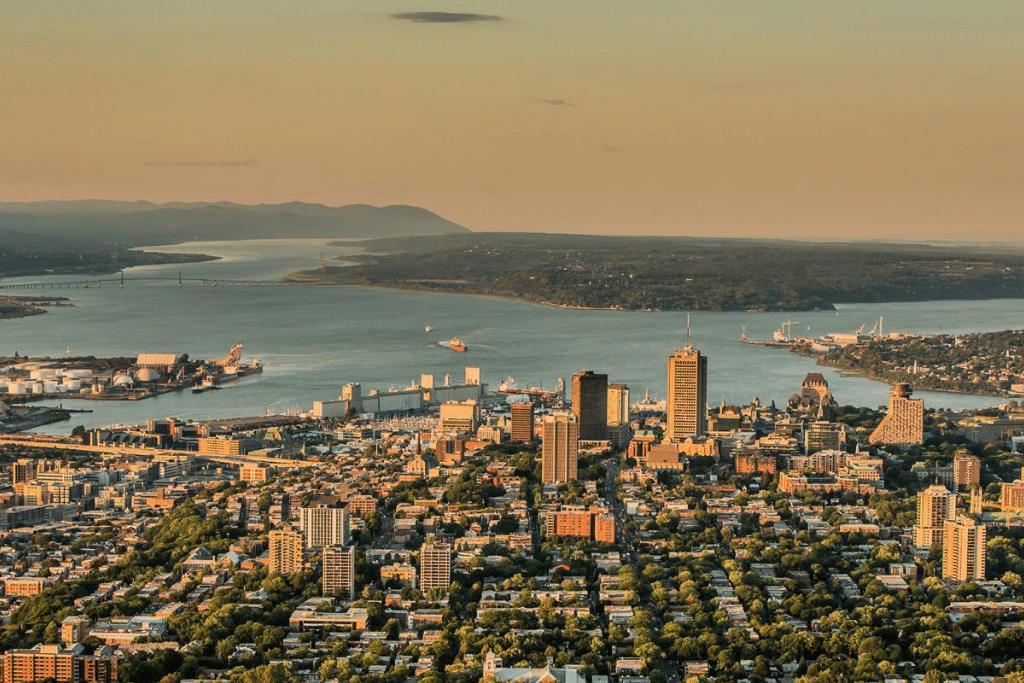Boosting Canada’s Potential of Hosting Renowned International Conferences and Events
Destination Canada has long understood the powerful role that international conferences play for both destinations and organizations alike. Recently, the Business Events team launched an exciting new initiative, called the Unicorn Event Initiative, to help raise awareness among government organizations of large-scale, renowned events that correlate with the country’s centres of excellence—with the ultimate goal of highlighting the meaningful difference they make in driving economic growth and destination development.
Meetings Mean Business Canada chatted with VIRGINIE DE VISSCHER, senior director of business development, economic sectors at Destination Canada, about the program.
Q1: First of all, can you explain what a “unicorn event” is?
Absolutely. Many people have likely heard of the term “unicorn” in the finance world, which is used to describe an exceptional class of companies that are valued at over $1 billion. This type of company is said to be a unicorn because of the rarity of achieving this status.
The same idea can be applied to the world of international conferences. A “unicorn event”—a term coined by Destination Canada—belongs to a class of large-scale conferences that have achieved a world-renowned status and produce well-documented, tangible, economic and social benefits for host countries. For example, using well-established formulas, we know that direct spending by delegates attending a 3,000-person conference in Canada represents roughly $4 million in spending for hotels, food, retail and so on.
More broadly, to qualify as a unicorn event an international conference must seek to achieve meaningful, long-term outcomes aligned with at least one of the 17 United Nations Sustainable Development Goals. The reason why this is so important is that we live in a post-COVID era where climate change is top of mind, and there is a stronger need to justify bringing thousands of people together in one place for a conference.
As every city has these events on their wish list, being successful in hosting them is no easy feat — and that’s where our new initiative comes into play.

Q2: What steps is Canada taking to increase the likelihood of hosting these unicorn events?
Competition is fierce among international cities to host events of calibre such as unicorn events—and we know that a strong bid requires significant funding and committed federal support. That’s why, working closely with destination partners across the country, we’ve developed a wish list of approximately two dozen world-renowned events. These cover the six key economic sectors that Canada holds a global competitive advantage in: technology, life sciences, advanced manufacturing, agribusiness, natural resources, and finance and insurance. All events are slated to take place between 2023 and 2032.
These events formed the basis for an educational initiative with federal government partners that will launch this fall, focused on highlighting the value of hosting international conferences in Canada. Specifically, the initiative will involve outreach to decision-makers at the political (Ministers’ office) and bureaucratic (Deputy Ministers’ office) level.
Q3: What’s involved in the awareness initiative?
Our initiative will communicate specific hosting opportunities to decision-makers within relevant federal government departments. We’ve divided these target events into the sector they fall under and will be presented to the relevant federal government departments whose portfolios cover that sector. For example, we will present our target life sciences events to Health Canada, agri-business events to Agriculture and Agri-Food Canada, natural resources events to Natural Resources Canada and so on.

Q4: Can you elaborate on the advantages that can come as a result of hosting these events?
Unicorn events, if they are hosted in future years in Canada, can be tremendous catalysts for stimulating economic recovery in the wake of COVID-19. This is especially the case for major urban centres across the country, which have been some of the hardest-hit areas, as it has the potential to bring new business to hotels, restaurants, conference centres and more.
Additionally, these events can drive cross-sector collaboration and innovation, attract international talent, spark new R&D partnerships, promote trade and open the door to new investment opportunities. They can also inspire delegates to return in the future as leisure visitors or even as residents. In short, unicorn events can leave a lasting legacy across Canada’s urban centres.
Q5: What’s your ultimate goal with the Unicorn Event Initiative?
Our goal is to instil a widespread awareness of the Destination Canada Business Event Economic Sector Strategy that focuses on attracting global conferences within our six priority economic sectors. In addition, we want to highlight the impact this has on government and the importance of leveraging international conferences to stimulate economic growth and destination development.
In a more tangible sense, we hope that this targeted engagement strategy will also lead to the development of a formalized process to work with our federal family counterparts in attracting future events that require government support. Achieving this level of coordination with the Canadian government will give our destinations a competitive advantage when it comes to bidding on future events and will increase the likelihood of more international events coming to Canada.
